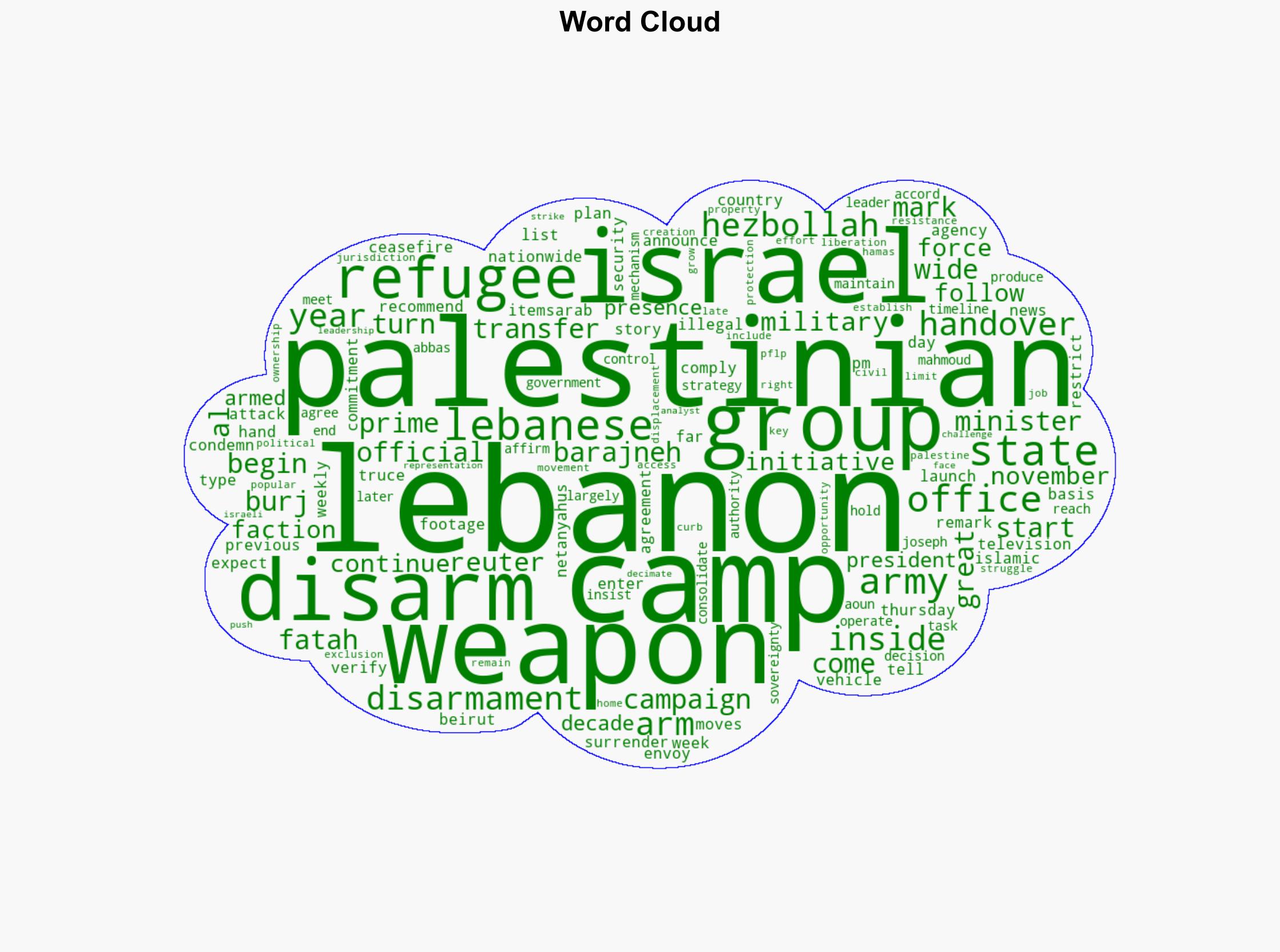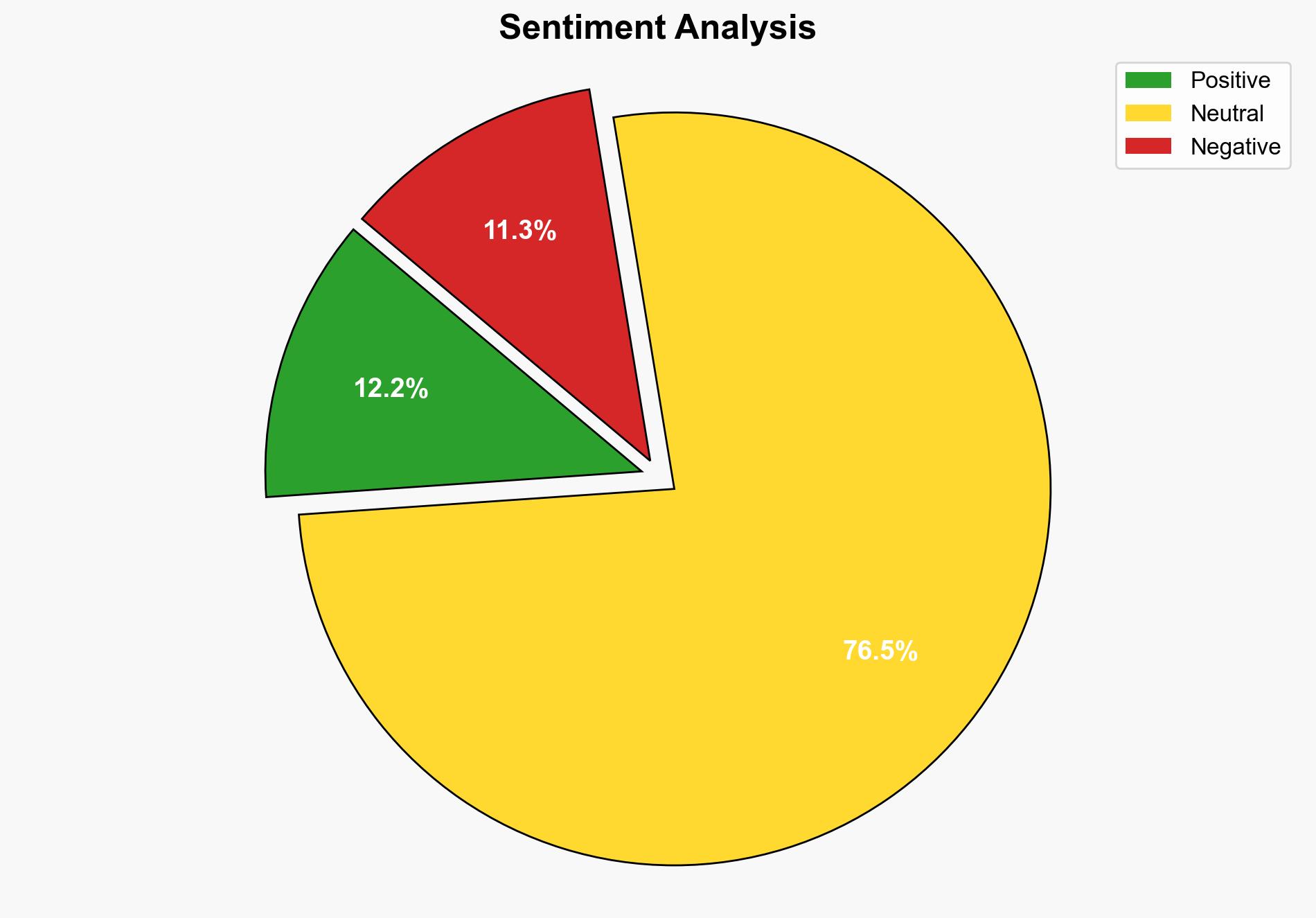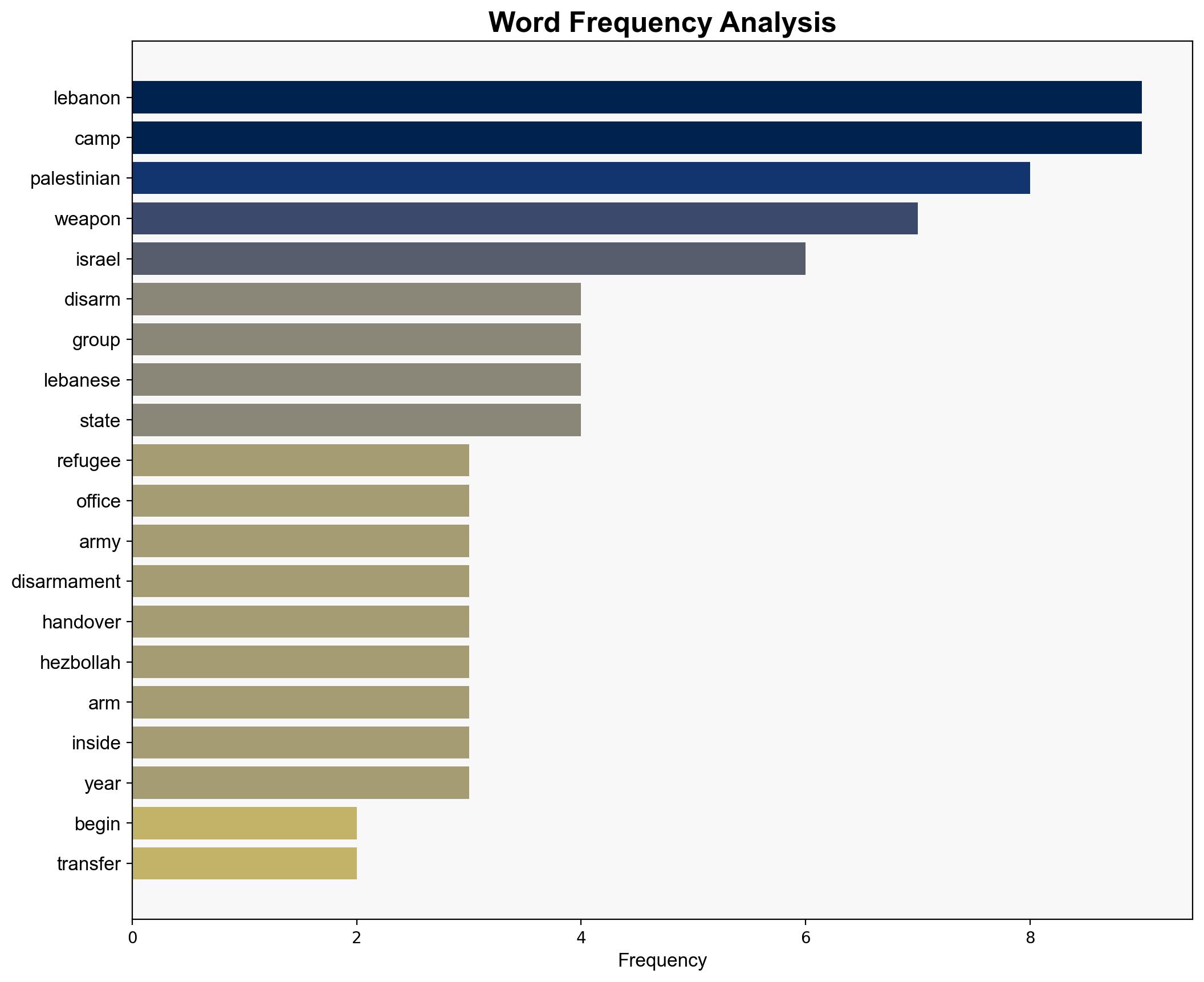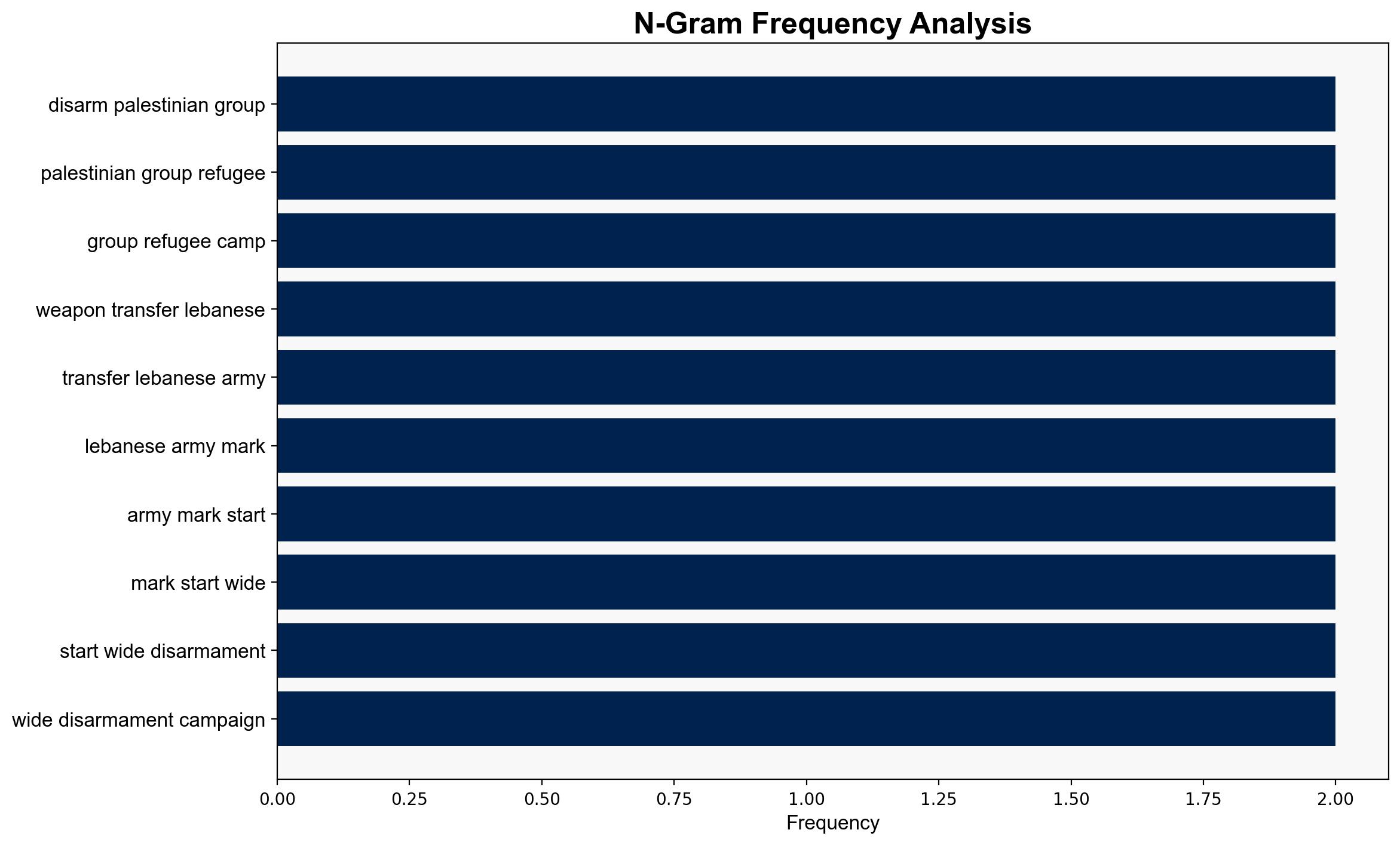Lebanon begins disarming Palestinian groups in refugee camps – Al Jazeera English
Published on: 2025-08-21
Intelligence Report: Lebanon begins disarming Palestinian groups in refugee camps – Al Jazeera English
1. BLUF (Bottom Line Up Front)
Lebanon’s initiative to disarm Palestinian groups in refugee camps is a strategic move to consolidate state control and reduce armed faction influence. The most supported hypothesis suggests this is part of a broader effort to stabilize internal security and assert sovereignty, amidst regional tensions involving Hezbollah and Israel. Confidence level: Moderate. Recommended action: Monitor the disarmament process closely for compliance and potential backlash, while engaging diplomatically with Palestinian leadership to ensure peaceful transitions.
2. Competing Hypotheses
Hypothesis 1: Lebanon’s disarmament initiative is primarily aimed at reinforcing state sovereignty and reducing internal security threats from armed Palestinian factions. This aligns with Lebanon’s commitment to a truce with Israel and efforts to centralize military power under state control.
Hypothesis 2: The disarmament is a strategic maneuver to weaken Hezbollah’s influence by targeting allied Palestinian factions, thus indirectly addressing external pressures from Israel and Western allies. This hypothesis suggests a geopolitical dimension, leveraging internal disarmament to balance regional power dynamics.
Using ACH 2.0, Hypothesis 1 is better supported due to Lebanon’s explicit statements on sovereignty and the structured timeline for disarmament, indicating a focus on internal consolidation rather than external maneuvering.
3. Key Assumptions and Red Flags
– Assumption: Palestinian groups will comply with disarmament without significant resistance.
– Red Flag: Lack of detailed information on the types of weapons surrendered and the verification process, raising concerns about transparency and potential deception.
– Blind Spot: The potential reaction of Palestinian refugees and their leadership, which could affect the initiative’s success.
4. Implications and Strategic Risks
– Potential escalation if disarmament is perceived as targeting specific factions unfairly, leading to unrest in refugee camps.
– Geopolitical risk if Hezbollah perceives this as a threat to its influence, possibly leading to increased tensions with Israel.
– Economic implications if instability affects Lebanon’s already fragile economy, deterring investment and aid.
5. Recommendations and Outlook
- Engage with Palestinian leadership to ensure a peaceful disarmament process and address grievances that may arise.
- Enhance intelligence gathering to monitor compliance and detect any signs of unrest or non-compliance.
- Scenario-based projections:
- Best Case: Successful disarmament leads to improved internal security and strengthened state sovereignty.
- Worst Case: Disarmament triggers violent resistance, destabilizing refugee camps and escalating regional tensions.
- Most Likely: Gradual compliance with sporadic resistance, requiring ongoing diplomatic and security efforts.
6. Key Individuals and Entities
– Joseph Aoun
– Mahmoud Abbas
– Fatah
– Hamas
– Popular Front for the Liberation of Palestine (PFLP)
7. Thematic Tags
national security threats, regional focus, counter-terrorism, geopolitical strategy





